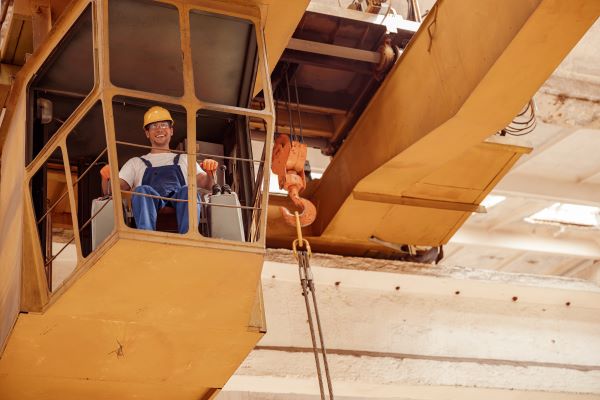Do Crane Operators Have Good Job Security?

In this article, we’ll talk about why crane operator job security is usually quite good and why a career as a crane operator can be rewarding and stable.
Why Do Crane Operators Have Good Job Security?
To start off, let’s talk about what “job security” means. Having good job security does not mean that you’re completely immune to losing your job for a variety of reasons. For one, there are always performance-related reasons for dismissal, and crane operators who are inefficient or, worse, unsafe can certainly be replaced. For another, every business goes through economic hardship sooner or later, and a reduction in work can follow.
When we say a position has good job security, here’s what we mean: Your position is difficult to replace by a cheaper, lesser-skilled candidate. You have a skillset or ability that reduces your risk in times of economic hardship, and your skills are highly in demand.
So, why is a crane operator job such a stable one?
Specialized Skillset
To safely and effectively operate a crane is no simple task. While the basics can be learned through a training program, becoming a good crane operator requires experience. It requires a deep understanding of how the crane operates, how load dynamics work, and jobsite safety protocols, in addition to excellent spatial awareness. A seasoned, skilled crane operator is indispensable to a construction team, and many foremen and managers will be reluctant to trade a proven veteran for a rookie to save money on salary.
Key Role in Construction
Crane operators are key to just about any construction project above a certain size. You might not have needed a crane for your backyard treehouse when you were a kid, but cranes are key to any large-scale construction project, from bridges to power plants to skyscrapers. Even with fluctuations in the economy, there will always be work for crane operators, and that is especially true with construction projects booming in the post-pandemic era.
Construction Projects and More
While cranes are obviously most often used in construction projects, their versatility and utility go beyond the construction site. For instance, consider that a crane operator could work loading and unloading cargo from container ships at ports. Crane operators can build stages in the entertainment industry or move heavy equipment that needs a larger touch to manage.
This versatility means that crane operators can work in different industries even if construction sees a slowdown in work.
If you want to learn how to land great crane operator jobs for yourself—and how you can gain those critical skills we mentioned earlier that can make you indispensable on a jobsite—then contact West Coast Training about our crane operator program. We’ll get you learning how to be a great crane operator before you can say “skyscraper.”
